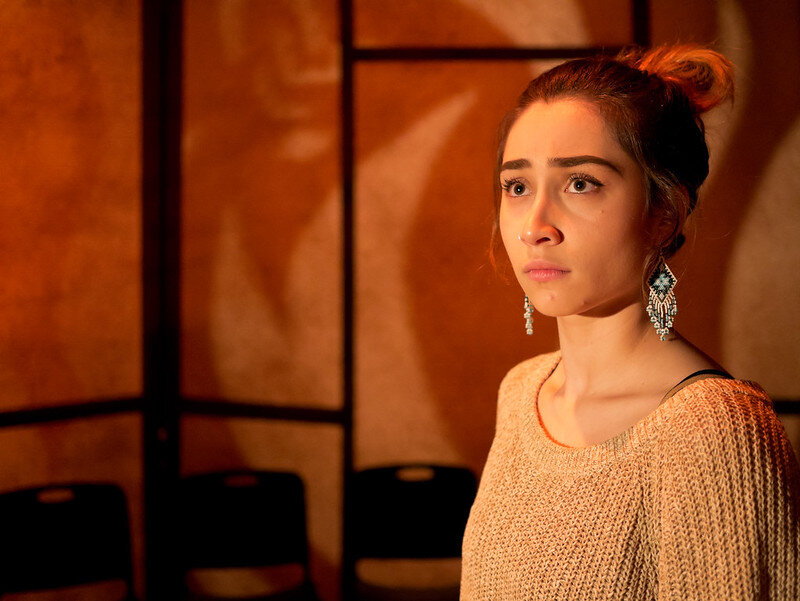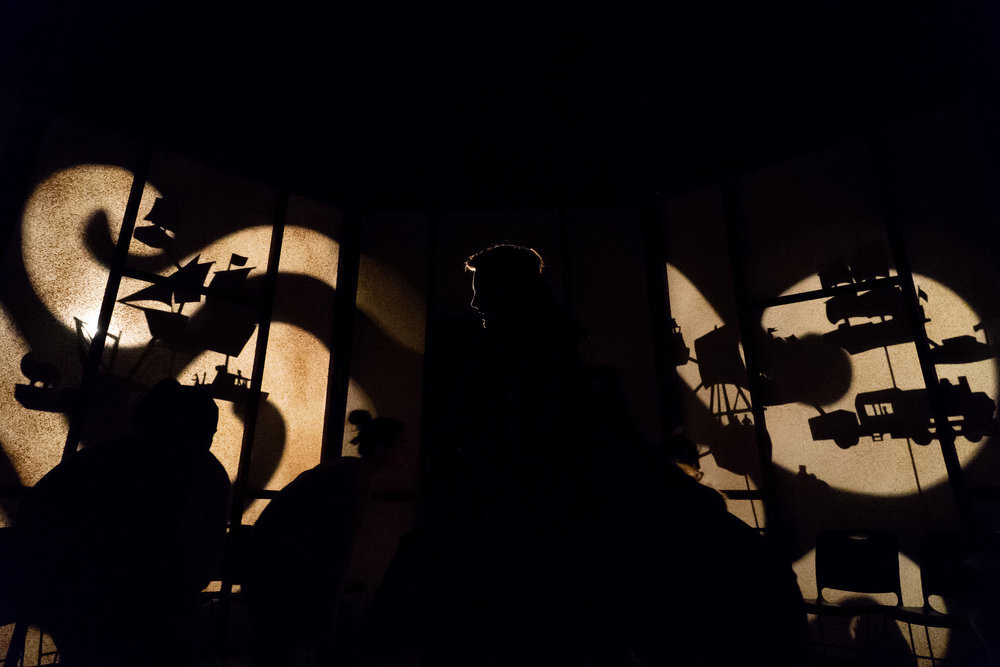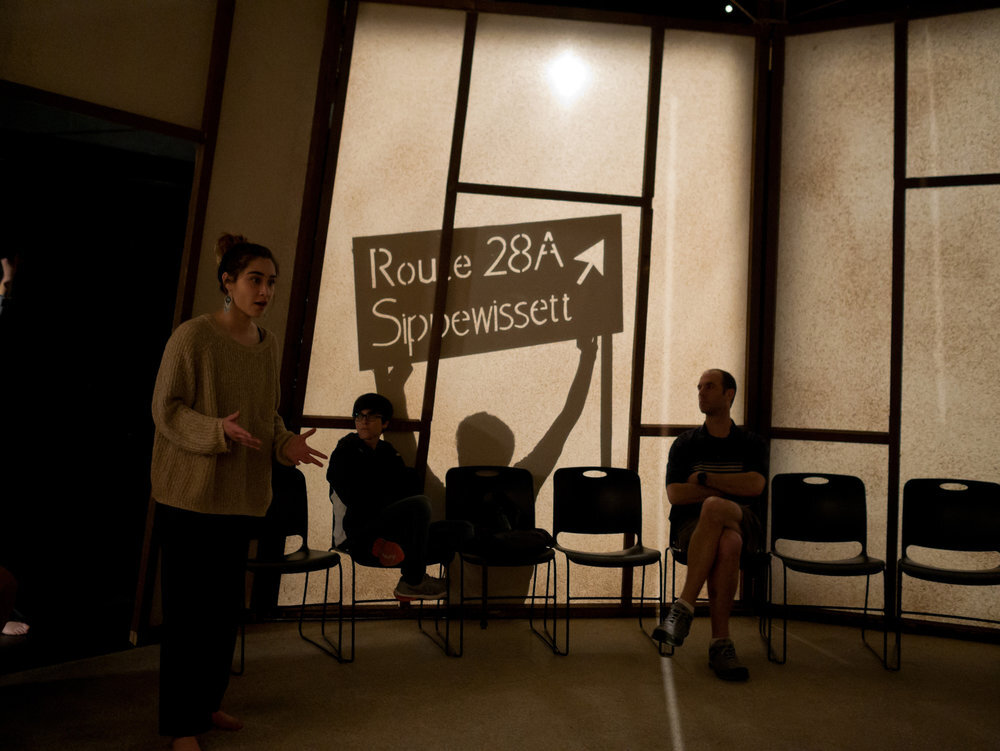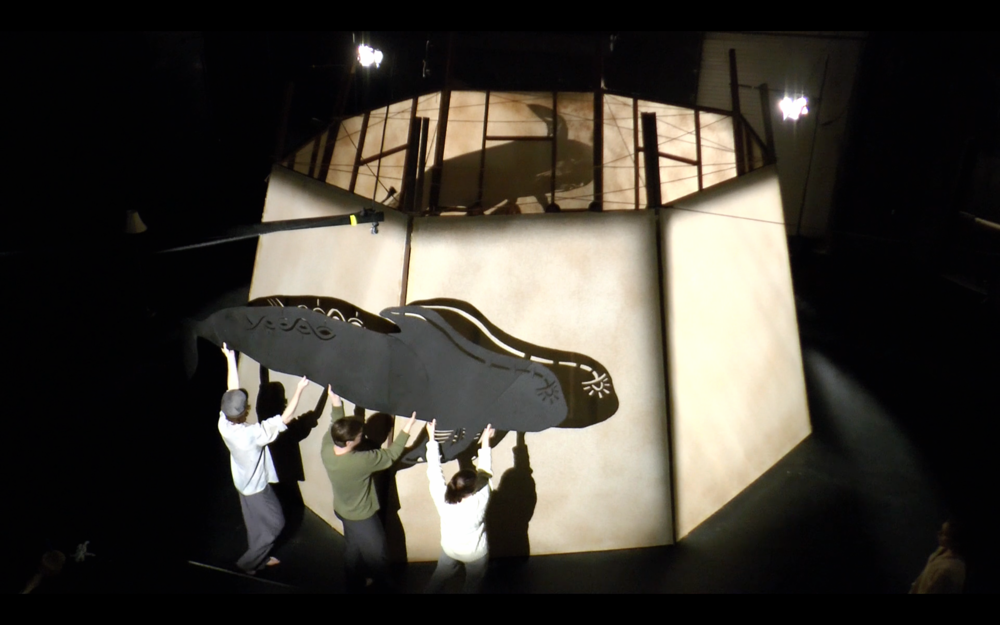
Blackfish
Workshop Production
Conceived & Directed by Jesse Baxter | Text by Jason Williamson
Developed in Workshop with the Ensemble
Spinal: MFA New Works in Theatre 2018
Towson University, Baltimore, MD
Blackfish is a family affair. My wife and producing partner Mary K. Baxter has told me so many stories about her great-grandfather Cap’n Philip Schwind. He was a crusty character and it’s fair to say he was one of the last true Cape Cod fishermen (as you might picture one to be). This Mayflower descendant was a writer with nothing to write about, so he took to the sea in search of words. There he found his muse. Cap’n Phil would go on to publish many books on fishing and life on the Cape, as well as cookbooks and a local column, It’s a Phil Schwind that Blows no Good. The common thread in all of his work was Cape Cod itself. It seems that he was attempting to conserve or remember a culture that was quickly changing. Later in life he would direct his attention towards sea life conservation. With such a wealth of raw material to work with (including interviews, stories from his children, and personal letters), Mary and I felt that a play about Cap’n Phil must be made.
I am interested in telling stories that connect us with the truth and spirit of a place: What does it smell like? Sound like? How does it taste? What does time feel like there? What social challenges do locals face? Are folks being marginalized? What myths, memories, histories, traditions, and dreams spring from this unique landscape? As I dug in, I found myself connecting with the Wampanoag Tribe of Cape Cod. I was in awe of the tenacity and achievement of linguist Jessie Little Doe Baird — a mother who brought back her people’s language, which had been gone for 150+ years. Inspired by her story, I began to see ways that it connected with Cap’n Phil’s —importantly both are descendants of the Thanksgiving/Day of Mourning story and each were in search of words.
I also came across the giant Moshup of Wampanoag folklore. Moshup is a flawed individual (not a god) but caring, a shaper of the land, and in one tale he offers to save the Wampanoag (from the devastating impact of the incoming white people) by transforming them into blackfish, which many accepted. These three stories are united by blackfish (orcas, pilot whales, and other small and mostly black whales). Economic forces drive Cap’n Phil to “murder” blackfish and he must face his actions. For Jessie, the decimation of the Wampanoag people is relived in the culling of the blackfish. Blackfish become an embodied metaphor for the loss and return of language (the words), life (the ancestors), cultural identity, and the legacy we leave for our children.
Blackfish asks how we, the descendants of past atrocities, reckon with the past to move forward in the now. And how do we as parents find the words our children need to hear? The use of heightened physicality and language intends to create room for a visceral meditation on these thoughts. My hope is that this poetry of movement and words will connect with you on a heart to heart level. I would like to invite you to enter into this space as if entering into a “wet cocoon.” This is a story to engage with, an experience filled with possibility for transformation and growth.
— Jesse Baxter
Conceived and Directed by Jesse Baxter
Artistic Director: Jesse Baxter
Executive Director: Mary K. Baxter
Stage Manager: Megan Durner
Lighting Design: David Crandall
Set Design: Daniel Ettinger
Costume Design: Ava Ertel
Puppet Design: Italo De Dea
Dramaturg: Jason Williamson
Puppeteers / Deck Hands: Autumn Koehnlein, Samuel Pomerantz, Isaiah Harvey
Featuring the Ensemble Cast: Kasie Lerner, Jon Kevin Lazarus, Willem Rogers, Taylor Rekus, Gina Mattucci, and Clara Coslett
Photos by Zachary Z. Handler & Joseph Castor
Presented with the generous support of the Towson University Department of Theatre Arts.
>> More Blackfish workshop production PHOTOS
>> More original DAT PLAYS
“A visceral meditation.”
— Laura Pazuchowski, Audience Member

















